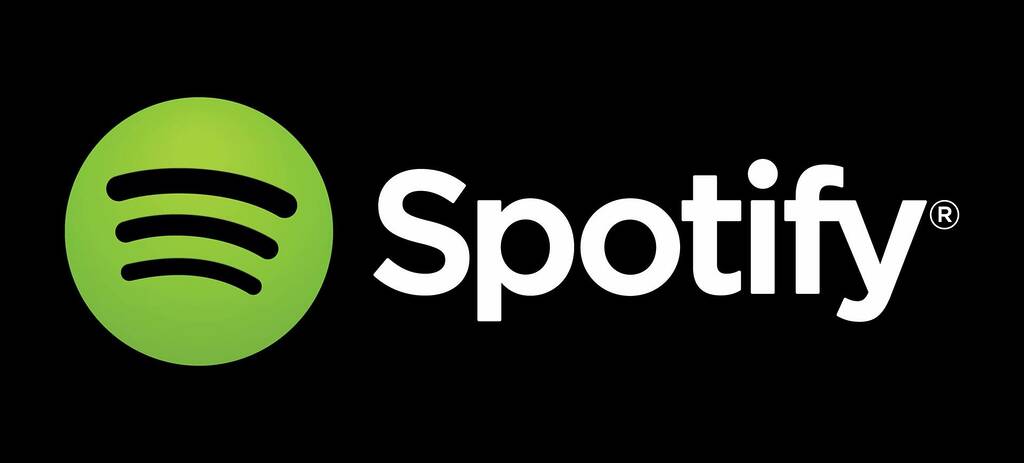
Introduction
Overview of the music industry
The music industry has undergone significant changes in recent years, and Spotify has played a crucial role in revolutionizing the way we consume and discover music. With its user-friendly interface and vast library of songs, Spotify has become the go-to platform for music lovers around the world. It has not only provided a convenient way to access music but has also disrupted traditional music distribution models and empowered independent artists to reach a global audience. Through personalized playlists and algorithmic recommendations, Spotify has transformed the way we discover new music, making it easier than ever to explore different genres and artists. In addition, its innovative features such as collaborative playlists and social sharing have enhanced the social aspect of music listening, allowing users to connect with friends and share their favorite tracks. Overall, Spotify has revolutionized the music industry by making music more accessible, diverse, and interactive.
Traditional music distribution methods
Traditional music distribution methods have been the backbone of the music industry for decades. From physical sales like CDs and vinyl records to radio play and live performances, these methods have shaped how music reaches its audience. However, with the advent of technology and the rise of streaming platforms like Spotify, the landscape of music distribution is undergoing a significant transformation. Spotify is revolutionizing the music industry by providing a convenient and accessible platform for artists to share their music with millions of listeners worldwide. Gone are the days of relying solely on record labels and physical sales; now, artists can directly connect with their fans and gain exposure through digital streaming. This shift not only allows for greater independence and control for musicians but also opens up new opportunities for emerging artists to be discovered and heard. Spotify’s impact on the music industry is undeniable, as it continues to reshape how music is distributed, consumed, and appreciated.
Emergence of streaming platforms
The emergence of streaming platforms has completely transformed the music industry. With the advent of platforms like Spotify, music consumption has become more convenient and accessible than ever before. Gone are the days of purchasing physical CDs or downloading individual songs. Streaming services allow users to access a vast library of music at their fingertips, offering a personalized and immersive listening experience. This shift in the way we consume music has not only changed the way artists distribute their work, but has also opened up new avenues for independent and emerging artists to reach a wider audience. The rise of streaming platforms has disrupted traditional revenue models in the industry, leading to debates and discussions about fair compensation for artists. Despite the challenges, the emergence of streaming platforms like Spotify has undoubtedly revolutionized the music industry, shaping the way we discover, listen to, and support music.
Spotify’s Impact on the Music Industry

Introduction of the freemium model
The introduction of the freemium model has been a game-changer for the music industry, and Spotify has been at the forefront of this revolution. With its innovative approach, Spotify has allowed users to access a vast library of music for free, while also offering a premium subscription option for those who want an ad-free experience and additional features. This model has not only disrupted the traditional music distribution channels but has also given artists a new platform to reach a global audience. By offering both free and premium options, Spotify has democratized the music industry, making it accessible to a wider range of listeners and providing artists with more opportunities for exposure and revenue. As a result, Spotify has become the go-to platform for music lovers and has significantly impacted the way we consume and discover music today.
Increased accessibility to music
Increased accessibility to music has been one of the key ways that Spotify is revolutionizing the music industry. With just a few clicks, users can access millions of songs from various genres and artists, anytime and anywhere. Gone are the days of purchasing physical albums or waiting for a song to play on the radio. Spotify’s vast library and user-friendly interface have made it easier than ever for music lovers to discover new artists, create personalized playlists, and explore different genres. Whether you’re at home, in the car, or on the go, Spotify ensures that music is always at your fingertips, giving everyone the opportunity to enjoy their favorite tunes with unparalleled convenience.
Changing revenue streams for artists
Changing revenue streams for artists: With the rise of streaming platforms like Spotify, artists are experiencing a significant shift in how they earn money from their music. In the past, artists relied heavily on album sales and physical merchandise to generate income. However, with the advent of streaming services, the focus has shifted towards digital royalties and live performances. While this change has presented new challenges for artists, it has also opened up opportunities for them to reach a wider audience and connect with fans on a global scale. As streaming continues to dominate the music industry, artists are adapting and finding innovative ways to monetize their craft, such as brand partnerships, licensing deals, and exclusive content offerings. Overall, Spotify and other streaming platforms have revolutionized the music industry by transforming the traditional revenue streams for artists and paving the way for a more diverse and dynamic music ecosystem.
Personalized Music Recommendations

Algorithm-based recommendation system
Spotify’s algorithm-based recommendation system has completely transformed the way we discover and consume music. By analyzing our listening habits, Spotify is able to curate personalized playlists and recommendations tailored to our individual tastes. This innovative approach has not only revolutionized the music industry but has also enhanced the overall music listening experience for millions of users worldwide. With Spotify’s algorithm at work, users can effortlessly explore new artists, genres, and songs that they may have never come across otherwise. This powerful tool has undoubtedly changed the game, making it easier than ever to find and enjoy the music we love.
Benefits of personalized recommendations
Personalized recommendations are one of the key benefits that Spotify brings to the table, revolutionizing the music industry. By analyzing users’ listening habits, Spotify is able to curate playlists and suggest new songs and artists that match their individual tastes. This not only enhances the user experience, but also helps users discover new music they may not have found otherwise. With personalized recommendations, Spotify is able to create a more tailored and enjoyable music discovery journey for its users, making it a game-changer in the industry.
Impact on user experience
Spotify has had a profound impact on user experience in the music industry. With its innovative features and user-friendly interface, Spotify has revolutionized the way people discover, listen to, and share music. The platform’s personalized recommendations and curated playlists have made it easier for users to explore new artists and genres, expanding their musical horizons. Additionally, Spotify’s seamless integration with social media has allowed users to connect with friends and share their favorite songs, creating a vibrant and interactive music community. Overall, Spotify has transformed the music listening experience, providing users with a convenient and immersive platform to enjoy their favorite tunes.
Collaborative Playlists

Enabling user-generated playlists
Enabling user-generated playlists is one of the key ways that Spotify is revolutionizing the music industry. By allowing users to create and share their own playlists, Spotify has empowered music lovers to become curators and influencers. This not only gives users a sense of ownership and control over their music experience, but it also creates a vibrant community where people can discover and connect through shared musical interests. User-generated playlists have become a powerful tool for artists and labels to promote their music, as well as for listeners to explore new genres and discover emerging talent. With millions of user-generated playlists available, Spotify has truly democratized the music industry, giving everyone the opportunity to shape the soundtrack of their lives.
Social aspect of music discovery
The social aspect of music discovery has become increasingly important in the digital age, and Spotify is at the forefront of this revolution. With its innovative features such as personalized playlists, collaborative playlists, and social sharing options, Spotify has transformed the way people discover and share music. Users can now easily connect with friends, follow their favorite artists, and explore new genres and artists through the recommendations and playlists curated by their peers. This social interaction not only enhances the music discovery experience but also fosters a sense of community among music lovers worldwide. Spotify’s emphasis on the social aspect of music discovery has truly revolutionized the music industry, making it more interactive, personalized, and connected than ever before.
Promoting artist collaborations
Promoting artist collaborations has become a key strategy for Spotify in revolutionizing the music industry. By facilitating partnerships between artists from different genres and backgrounds, Spotify has created a platform for unique and innovative collaborations. This not only provides listeners with a diverse range of music, but also allows artists to reach new audiences and expand their creative horizons. Through curated playlists, exclusive releases, and collaborative features, Spotify has successfully fostered a sense of community and connection among artists and listeners alike. As a result, the music industry has seen a surge in exciting and boundary-pushing collaborations, ultimately changing the way we experience and appreciate music.
Data Analytics and Insights

Understanding listener behavior
Understanding listener behavior is crucial for any music streaming platform, and Spotify has taken this understanding to a whole new level. By analyzing vast amounts of data, Spotify has been able to gain deep insights into how listeners interact with music. From understanding their preferences and habits to predicting their next favorite song, Spotify has revolutionized the way we understand and cater to listener behavior. This data-driven approach has allowed Spotify to personalize the music experience for each individual user, creating a unique and tailored listening journey for millions of people around the world.
Targeted marketing and promotion
Targeted marketing and promotion play a crucial role in Spotify’s revolutionizing of the music industry. With its vast amount of user data, Spotify is able to personalize recommendations and advertisements, ensuring that artists and songs reach the right audience at the right time. This targeted approach not only benefits artists by increasing their visibility and fan base, but it also enhances the listening experience for users, as they are exposed to music that aligns with their preferences. By leveraging advanced algorithms and machine learning, Spotify has transformed the way music is marketed and promoted, creating a more personalized and engaging music discovery journey for both artists and listeners.
Predictive analytics for music trends
Predictive analytics for music trends is a game-changer in the music industry, and Spotify is at the forefront of this revolution. By analyzing vast amounts of data, including user listening habits, preferences, and trends, Spotify is able to predict the next big hits and identify emerging artists before they reach mainstream success. This invaluable insight allows music labels, artists, and industry professionals to make informed decisions about marketing strategies, tour planning, and talent scouting. With predictive analytics, Spotify is reshaping the way the music industry operates, empowering both established and up-and-coming artists to thrive in a highly competitive market.
Challenges and Controversies

Artist compensation and royalty rates
Spotify’s impact on artist compensation and royalty rates cannot be overstated. With its innovative streaming platform, Spotify has completely transformed the way musicians are paid for their work. In the past, artists relied heavily on album sales and physical distribution to earn a living. However, Spotify’s model allows artists to earn royalties based on the number of streams their songs receive. This has opened up new opportunities for emerging artists to gain exposure and generate income. While some critics argue that streaming services like Spotify pay artists too little, there is no denying the positive impact it has had on the accessibility and reach of music worldwide.
Competition and market dominance
Competition and market dominance are key factors in the success of any industry. In the music industry, Spotify has emerged as a dominant player, revolutionizing the way people consume music. With its user-friendly interface, extensive library of songs, and personalized recommendations, Spotify has captured a significant market share. However, it faces tough competition from other streaming platforms like Apple Music and Amazon Music, who are also vying for a larger market share. Despite the competition, Spotify’s innovative features and strong brand presence have allowed it to maintain its market dominance and continue to shape the future of the music industry.
Censorship and content moderation
Censorship and content moderation have become increasingly important topics in the digital age, and the music industry is no exception. As streaming platforms like Spotify continue to gain popularity, they have also faced challenges in balancing the freedom of expression with the need to protect users from offensive or inappropriate content. Spotify has implemented various measures to address these concerns, including the use of algorithms and human moderators to review and filter content. While these efforts have been generally successful, they have also raised questions about the potential for bias and the limits of censorship in the music industry. As Spotify continues to revolutionize the way we consume music, finding the right balance between artistic freedom and responsible content moderation remains a complex and ongoing challenge.



